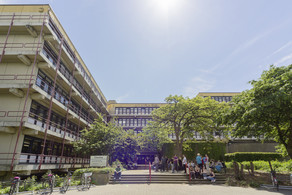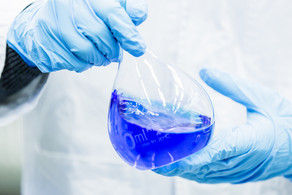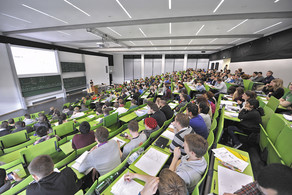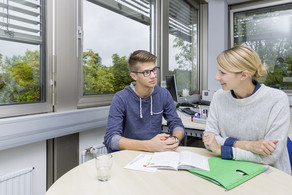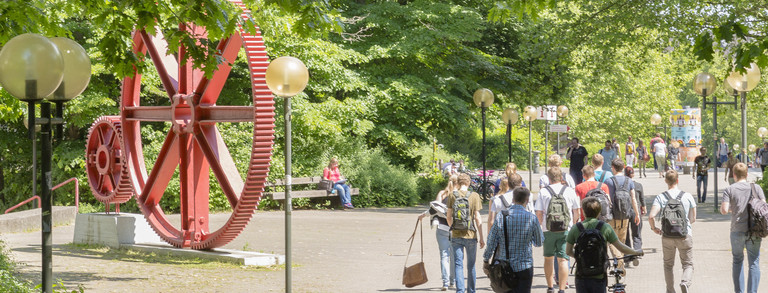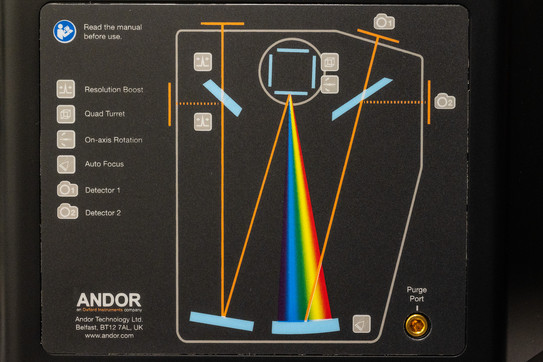Prof. Dr. Andreas Steffen
Technische Universität Dortmund
Fakultät für Chemie und Chemische Biologie
Anorganische Chemie
Otto-Hahn-Str. 6
44227 Dortmund
Germany
Room: C2-07-332
E-Mail: andreas.steffentu-dortmundde
Phone: +49 231 755 3800
Fax: +49 231 755 5048
Secretary
Helga Schulte
Room: C2-07-331
E-Mail: helga.schultetu-dortmundde
Phone: +49 231 755 3801
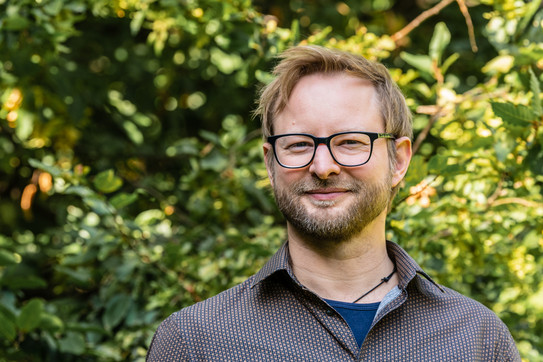
News
2023
Approval of our "Momentum" proposal by the VW Foundation
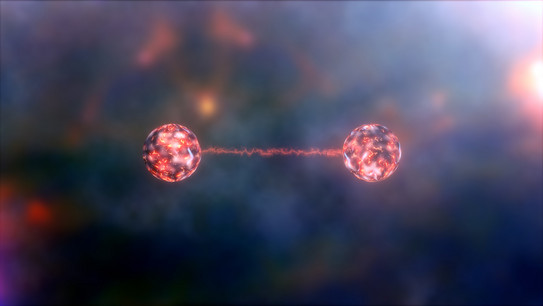
Photons serve as the basis for novel quantum technologies, but linking their information has been very challenging so far. We want to change that in the future. Over the next four years, the Volkswagen Foundation will fund our project "Molecular Entangled 2-Photon Sources" with around 800,000 euros, in which we aim to produce entangled 2-photon sources for quantum information technologies through molecular design.
2022
Successful PhD of André Muthig
(27.10.2022)
We congratulate M. Sc. André Muthig on the successful defense of his PhD thesis (Near Infrared and Circular Polarized Luminescence of Donor Copper(I) Acceptor Complexes) and bid him farewell with best wishes.
Installation Edinburgh FS5
(14.10.2022)
In addition to the operation of the FLS1000, standard measurements for the investigation of the excitation and emission behavior can also be performed in the future with the FS5 Spectrofluorometer from Edinburgh Instruments. The use of a cryostat enables us to perform low temperature measurements at 77K in addition to measurements at room temperature.
Since the 2022 committee election, Prof. Dr. Andreas Steffen has been a member of the Senate Representation as of July 01, 2022.
First study on luminescent zinc complexes now available
(accepted 18.05.2022)
As of today, our first work on luminescent zinc compounds can be read in Chemistry - A European Journal. The novel Zn(II) complexes with cAAC ligands as chromophore exhibit extraordinarily long lifetimes, the cause of which was investigated and elucidated by comprehensive photophysical studies as well as supporting quantum chemical calculations by our cooperation partner Prof. Christel Marian (HHU Düsseldorf).
The SPP 2102 meets in Jena
(11.-13. Mai 2022)
Prof. Steffen and his co-workers M.Sc. Stefan Koop, M.Sc. Julia Kuhnt and M.Sc. Mousree Mitra participated in the meeting of Priority Program 2102 "Light-controlled reactivity of metal complexes" at the Friedrich Schiller University Jena and presented recent results in the field of zinc(II) emitters.
Approval of our SPP grant proposal
(Januar)
The second funding phase of the Priority Program 2102 "Light-controlled reactivity of metal complexes” has started and we’ll be part of the team, once again! Within the project "Design of circularly polarized NIR luminescence (CPL) by triad exchange of d10 complexes" we will investigate photoactive transition metal complexes once more in cooperation with our long-term collaboration partner Prof. Christel Marian (HHU Düsseldorf), this time focusing on the nickel triad.
2021
Award of the Teaching Prize 2021, Category 1
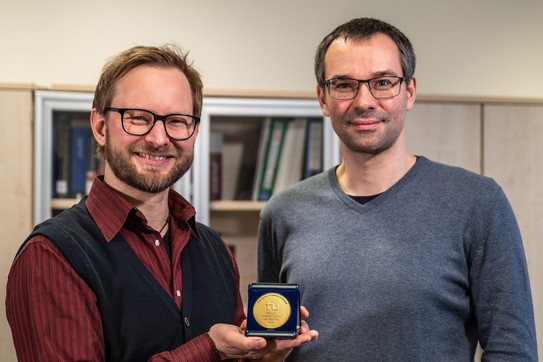
(16.12.2021)
Prof. Steffen and Prof. Henke were awarded the TU Dortmund University's 2021 Teaching Prize, Category 1, for their extraordinary commitment and successful execution of the first-ever all-digital first-semester lecture "General and Inorganic Chemistry (AC1)" in the winter semester 2020/21.
Extension of Julia Kuhnt's PhD fellowship
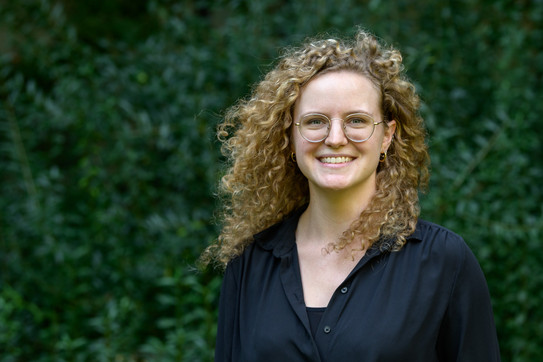
(08.12.2021)
We congratulate M.Sc. Julia Kuhnt on the extension of her PhD scholarship at the Deutsche Bundesstiftung Umwelt (DBU) and wish her good luck on her way to the finishing line!
Transient absorption spectrometer up and running
(05.11.2021)
With the completion of the last renovation work in our laser spectroscopy room, our transient absorption spectrometer is now ready for use and opens up new possibilities for us to study photoactive systems in the excited state. By combining a streak camera (Hamamatsu) with a Nd:YAG laser connected to an optical parametric generator (Ekspla), we can excite samples between 210-2300 nm and subsequently study them over the entire near-UV and visible spectrum with a temporal resolution in the picosecond to millisecond range - and even at temperatures as low as 77 K.
We thank the German Research Foundation for their generous support and are already looking forward to exciting findings.
Patent application "Emitter material for OLEDs”
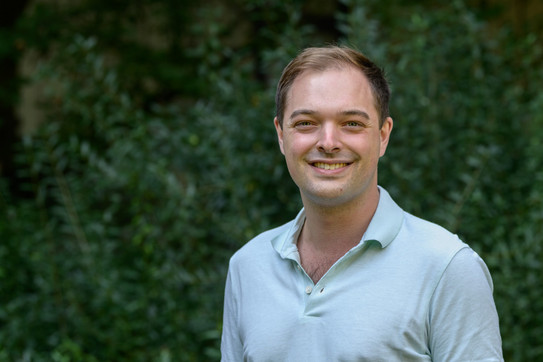
(November)
Based on M.Sc. André Muthig's promising work on chiral Cu(I) emitters, we have applied for the patent "Emitter material for OLEDs" (DE 10 2021 128 889.4) with our long-term cooperation partner Prof. Jens Pflaum (JMU Würzburg) and collaborators.
Dr. Andrei Beliaev receives Alexander von Humboldt Fellowship
(01.09.2021)
With the completion of his one-year postdoctoral fellowship from the Finnish Jenny and Antti Wihuri Foundation, Dr. Beliaev was able to secure two years of follow-up funding through a postdoctoral fellowship from the Alexander von Humboldt Foundation. Congratulations, we look forward to two more productive years with you!
Publication of our book chapter as part of CCC III
(19.07.2021)
The reference book Comprehensive Coordination Chemistry III has been published with our contribution "Design of Efficient Emissive Materials ". In addition to an introduction to the necessary photophysical theory and a discussion of general design criteria, we provide an overview of recent developments in the field of 3d transition metals, with a particular focus on Cu(I).

